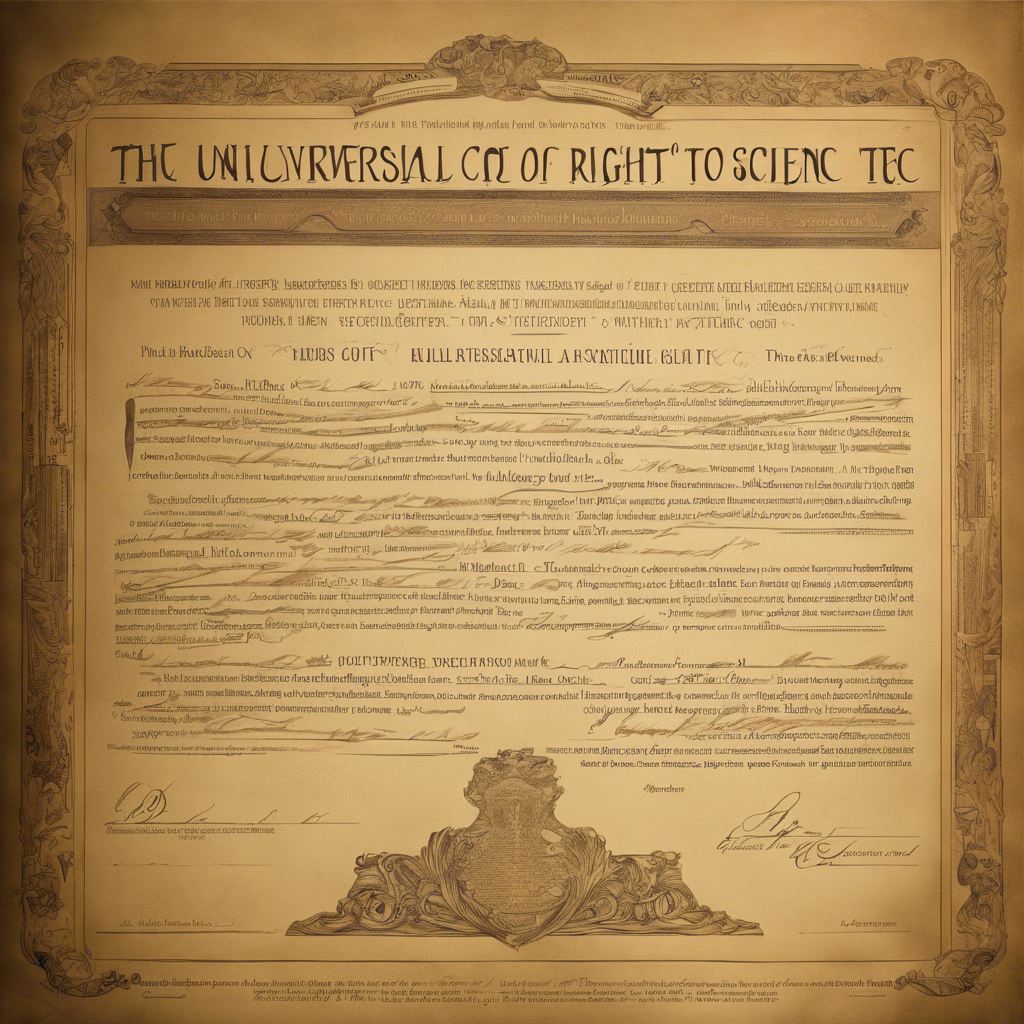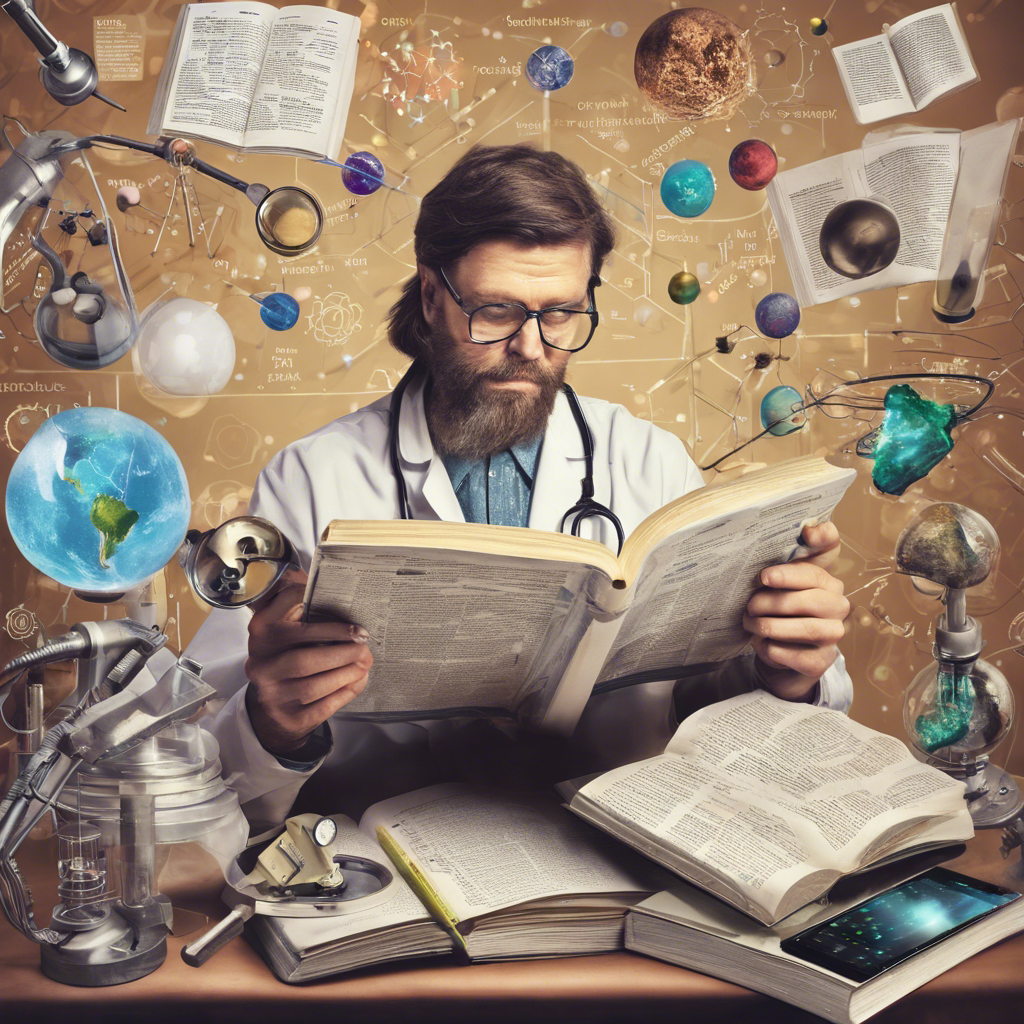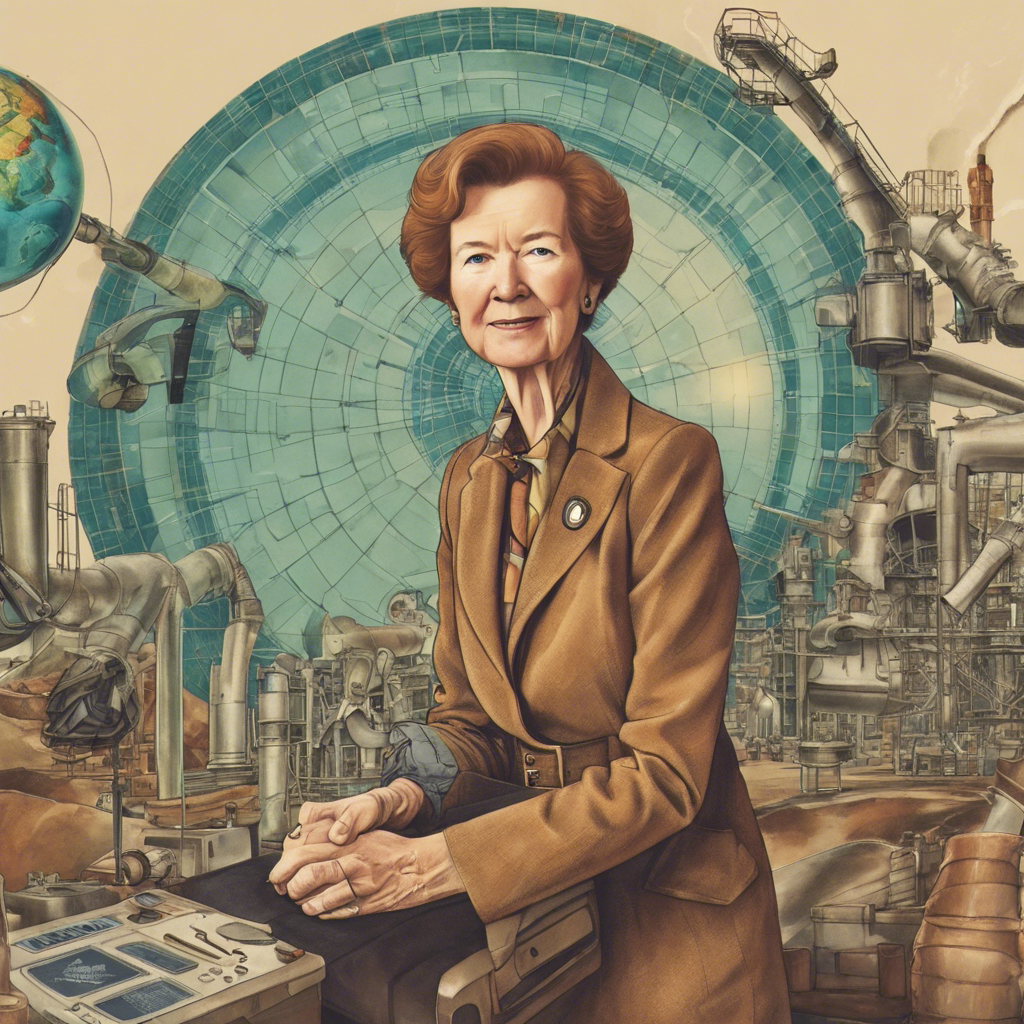The Universal Declaration of Human Rights and the Right to Science: A Timeless Call for Progress

Upholding the Right to Science in the Modern Era
Seventy-five years ago, the Universal Declaration of Human Rights was proclaimed, emphasizing the fundamental role of science in advancing humanity. Article 27 of the declaration recognizes the right of individuals to freely participate in the cultural life of their communities, enjoy the arts, and share in scientific advancements and their benefits. This groundbreaking statement, crafted through collective deliberation and compromise, remains as relevant today as it was in 1948.
The Protections of Article 27:
Article 27 of the Universal Declaration of Human Rights is a remarkable testament to the importance of science, art, and culture. It challenges the prevailing notion that science and culture are separate entities. However, the question arises: what exactly does Article 27 protect? As the scientific landscape has evolved over the past 75 years, it is crucial to explore the implications of this right in the context of contemporary challenges.
The Changing Face of Science:
The digital revolution, advancements in Earth systems research, and transformative developments in fields such as agriculture, medicine, and the life sciences have transformed the scientific landscape since 1948. Today, the right to enjoy a clean environment and a stable climate, equitable distribution of medical advancements, and access to the Internet and scientific knowledge are pressing issues that Article 27 may encompass.
The Gap Between Knowledge and Action:
Despite the progress made in scientific research, the benefits derived from it often fail to reach those who need them most. The slow pace of scientific studies on climate adaptation, the inequitable distribution of vaccines during the COVID-19 pandemic, and the question of responsibility for climate change’s loss and damage underscore the urgency of addressing these gaps. The right to science must be upheld to ensure that knowledge translates into action and benefits all of humanity.
Science and Human Rights in International Discussions:
International meetings on various global challenges, including climate change, plastic pollution, and pandemics, increasingly recognize the central role of science. Scientists, working alongside human rights advocates, have successfully highlighted the need for agreements and policies that protect people and the planet. However, research now faces formidable challenges from powerful interests in international negotiations, hindering the progress of science-based collective action.
The Right to Science in the Modern Era:
As the world grapples with overlapping crises, the right to science becomes intertwined with other human rights. The Universal Declaration of Human Rights remains a timeless guide, reflecting how nations can collaborate and draw upon knowledge and experience to achieve common goals. In this critical juncture, the right to research should inform the scientific choices we make and the international laws we create to address the challenges of our time.
Conclusion:
The Universal Declaration of Human Rights, proclaimed 75 years ago, continues to emphasize the fundamental role of science in advancing humanity. Article 27 recognizes the right of individuals to participate in cultural life, enjoy the arts, and share in scientific advancements. As the world faces pressing challenges, it is crucial to uphold the right to science, ensuring equitable access to knowledge, and translating it into meaningful action. By embracing the principles of the declaration, we can forge a path towards progress, guided by the timeless call for the right to science.










